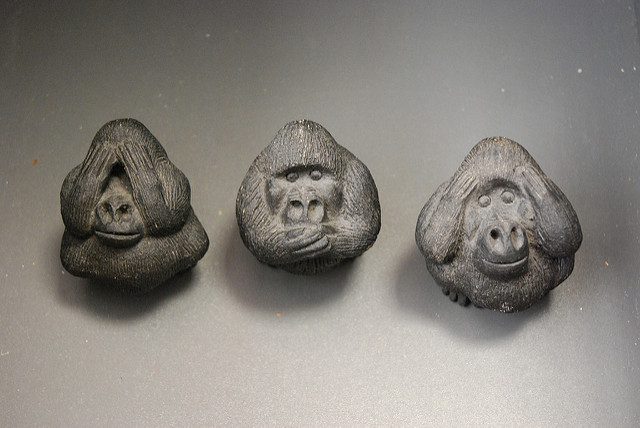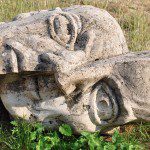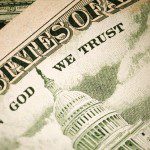
No one is immune to critique. In fact, we all need it. However, when a leader claims directly or indirectly that he or she is immune to critique, it is a warning that (further) a devastating abuse of power is around the corner.
I so resonated with former U. S. President George W. Bush stating earlier this year that the media is indispensable to democracy. An independent media is not an enemy of the people: “‘We need an independent media to hold people like me to account,’ Bush said. ‘Power can be very addictive, and it can be corrosive. And it’s important for the media to call to account people who abuse their power, whether it be here or elsewhere.’”
What a startling contrast to statements made by President Donald Trump. Concerns over President Trump’s attempts at political immunity from critique and accountability have spilled over into his administration’s firing of FBI Director James Comey (Refer here, here, and here).
It is not simply in politics that abuse of power can occur. The same can easily and all too often happen in the religious domain. Thus, it is important that spiritual leaders are accountable rather than immune to critique. It reminds me of a story of a pastor of a large church who said that the Apostle Paul was wrong to rebuke the Apostle Peter, as recorded in Galatians chapter 2:11-14. Here is what Paul wrote:
But when Cephas [Peter] came to Antioch, I opposed him to his face, because he stood condemned. For before certain men came from James, he was eating with the Gentiles; but when they came he drew back and separated himself, fearing the circumcision party. And the rest of the Jews acted hypocritically along with him, so that even Barnabas was led astray by their hypocrisy. But when I saw that their conduct was not in step with the truth of the gospel, I said to Cephas before them all, “If you, though a Jew, live like a Gentile and not like a Jew, how can you force the Gentiles to live like Jews?”
According to this pastor, leaders like Peter are immune to such challenges.
In the political realm, presidents and other leaders are bound to the Constitution. In the religious sphere, pastors, theologians and the like are accountable to the Bible. We must always place ourselves under Scripture, not over it, in the church.
Having said all this, we must guard against full-blown skepticism, as well as confirmation bias, of which supporters and detractors alike can be guilty. We often hear no evil, speak no evil, see no evil of our own positions, only those of the “other side.” Confirmation bias interprets events and information according to the views we embrace, including unduly positive or negative perspectives of various leaders. For example, a culture made up of suspicious and cynical people often waits in expectation for leaders to fall from grace in the political and religious spheres, whether it be Comey or Trump. Perhaps in the days ahead we will find that President Trump was justified in firing FBI Director Comey. While we may remain doubtful and desire a full disclosure, we must remain open to the possibility that the President was right to fire Comey until a full inquiry (possibly involving a special prosecution or independent investigation) is made.
The public—whether it be citizens, parishioners, the media and their readers/respondents—wield power, too. It is important that we all seek after truth, which is not equivalent to the selection of data that confirms our opinions (such confirmation bias of opinions is sometimes claimed about the Left and Right, including the Trump-Comey conflict). Just as leaders must not play the immunity card, we should not hide behind alias monikers or reference only anonymous sources, but open ourselves up to full disclosure. An independent media that holds leaders accountable is important to good governance, as is the prophetic Word of freedom in the church, as in the case of Paul’s rebuke of Peter. But they themselves must remain open to critique based on sound reasoning and full disclosure of facts while also guarding against media monopolies so as not to fall prey to fake news.
What will it take for us to sense and be honest that we all struggle with objectivity, that we all tend to think we are more objective than those on the other side, and that we are immune to charges of bias? It will take a willingness not to immunize ourselves from those we find irrational or disgusting, and to listen to them as they share their concerns, including what they think about our positions. As in the case that power corrupts and absolute power corrupts absolutely, bias blinds us, and absolute bias blinds absolutely. We can try to immunize ourselves from critique all we want, but if we don’t recognize our cognitive fragility, we will not be able to diagnose the devastating disease of falsehood and divisiveness in society before it is too late.













